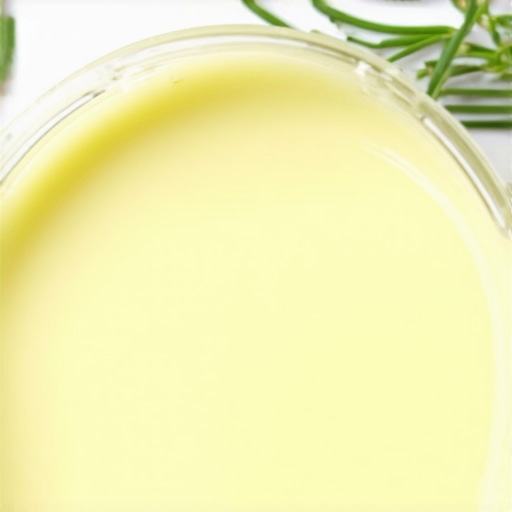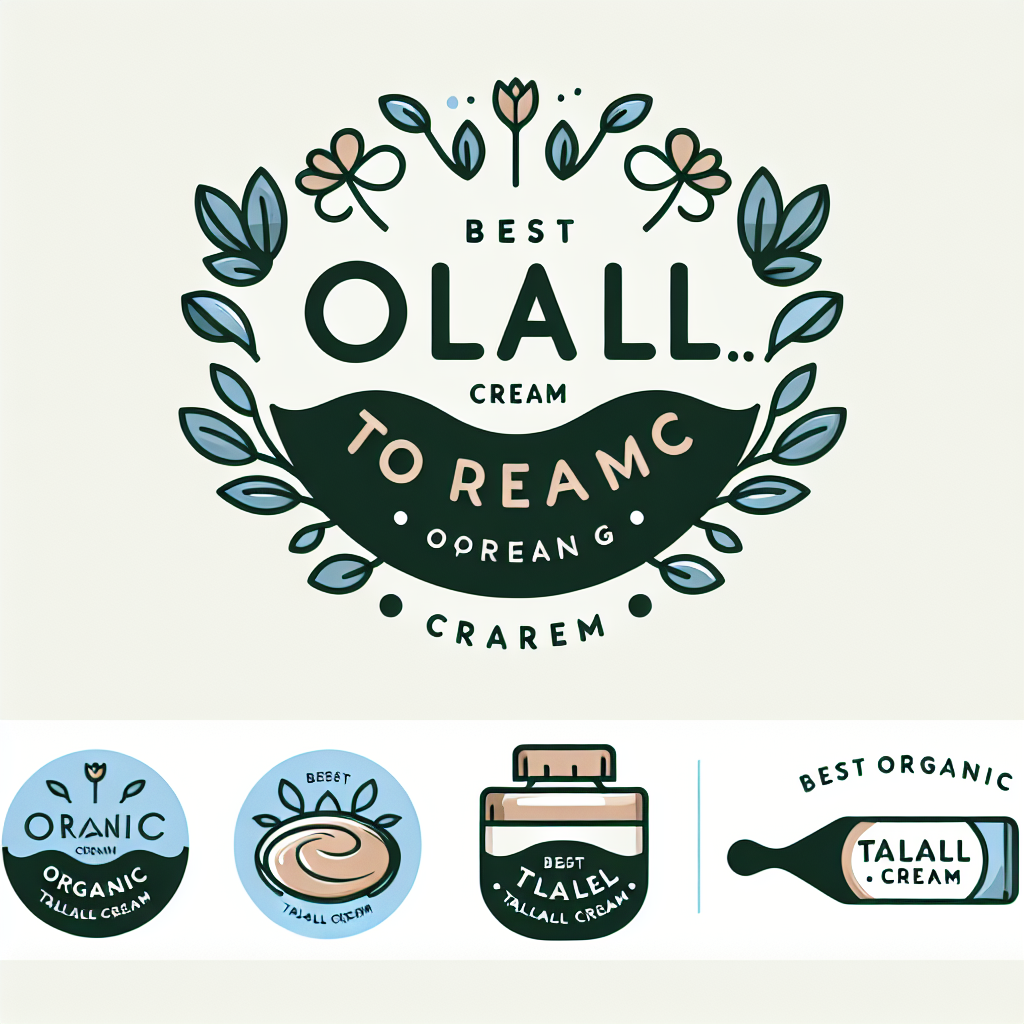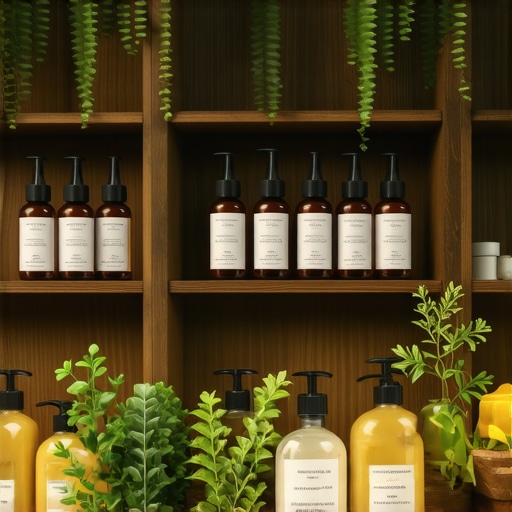Unveiling My Skin’s Best Friend: The Power of Organic Tallow
As someone who has always struggled with sensitive skin, I understand the frustration of trying countless remedies that promise relief but often fall short. A few months ago, I stumbled upon the remarkable benefits of using best tallow for sensitive skin, and it truly transformed my skincare routine. The journey wasn’t just about finding a moisturizer; it became a quest for natural, ethical, and effective solutions that respect both my skin and the planet.
Why I Chose Ethical and Organic Tallow Brands
My first step was understanding what makes ethical and organic tallow so special. Unlike synthetic ingredients, high-quality tallow is rich in nutrients like vitamins A, D, E, and K, which support skin repair and hydration. I was also concerned about sourcing—hence my preference for brands that prioritize grass-fed, pasture-raised animals and cruelty-free practices. This approach ensures the product is pure, free from harmful additives, and sustainable, aligning with my values and skincare needs.
The Benefits of Incorporating Tallow into Sensitive Skin Routines
Since I started using grass-fed tallow in my skincare, I’ve noticed a significant reduction in redness and irritation. The lipid profile of tallow closely resembles our skin’s own sebum, making it incredibly compatible and nourishing. It’s deeply moisturizing without clogging pores, which is crucial for sensitive skin types. Plus, it helps strengthen the skin barrier, a feature I found especially beneficial during harsh weather conditions.
How Do I Use Tallow for Optimal Results?
My routine involves applying a small amount of whipped tallow after cleansing, especially at night. I love experimenting with DIY recipes, like a whipped tallow with essential oils, to boost hydration. For daytime, I prefer a light layer to protect my skin from environmental stressors.
Is Tallow Suitable for All Sensitive Skin Conditions?
This question has crossed my mind often, especially considering conditions like eczema or rosacea. Based on my experience and research, tallow can be soothing for eczema-prone skin because of its anti-inflammatory properties. However, I recommend patch testing first and consulting with a dermatologist, especially if you have autoimmune skin conditions.
If you’re curious to explore more, I highly suggest checking out why grass-fed tallow is trending in clean beauty and how it can support your skin’s healing process. I’d love to hear your personal experiences—share your stories or questions in the comments below!
Understanding the Nutrient Profile of Organic Tallow and Its Impact on Skin Health
One of the most compelling reasons to incorporate organic tallow into your skincare routine is its rich nutrient profile. Unlike many modern moisturizers filled with synthetic chemicals, tallow is naturally packed with fat-soluble vitamins such as A, D, E, and K. These nutrients play crucial roles in skin repair, cell regeneration, and overall barrier function. Vitamin A, in particular, is renowned for its ability to stimulate collagen production and promote a youthful glow, making tallow a potent anti-aging ally.
The Science Behind Tallow’s Compatibility with Human Skin
What makes tallow stand out among natural emollients is its lipid composition. It closely resembles human sebum, which explains its exceptional compatibility. This similarity allows tallow to penetrate deeply without clogging pores, fostering deep hydration and support for the skin’s barrier. Moreover, the presence of conjugated linoleic acid (CLA) in grass-fed tallow provides anti-inflammatory properties, reducing redness and irritation—especially beneficial for sensitive or compromised skin.
Practical Tips for Incorporating Tallow into Your Routine
Experts recommend starting with small amounts, especially if you have sensitive skin or are prone to breakouts. Applying a thin layer of tallow-based face cream after cleansing can enhance skin resilience. For those interested in DIY, creating a whipped tallow with essential oils tailored to your skin’s needs can be both fun and effective. For example, adding frankincense or lavender can boost healing and calming effects.
Can Tallow Support Skin Repair in Autoimmune Conditions?
This question is particularly relevant for individuals with autoimmune skin disorders such as eczema or psoriasis. Research indicates that beef tallow may help soothe inflammation and restore the skin’s natural barrier, reducing flare-ups and discomfort. Its anti-inflammatory and deeply nourishing qualities can be especially advantageous when used consistently over time. However, patch testing is essential, and consulting with a healthcare professional is always advisable before making significant changes to your skincare regimen.
What Are the Future Trends in Natural Skincare with Animal Fats?
As the clean beauty movement continues to grow, experts predict an increased emphasis on ethically sourced animal fats like grass-fed tallow. Brands are now prioritizing transparency and sustainability, ensuring that products support both skin health and ethical farming practices. According to a recent report, the shift towards ethical tallow sourcing is not just a trend but a reflection of consumer demand for holistic and responsible beauty solutions. These formulations are gaining recognition for their ability to deeply nourish and repair skin from within, emphasizing the importance of nutrient-dense, minimalistic ingredients.
If you’re eager to deepen your understanding, I encourage you to explore more about the benefits of using tallow for skin and how it can be seamlessly integrated into your daily routine. Feel free to share your insights or ask questions in the comments—I love hearing about your experiences with natural skincare!
Embracing the Complexity of Natural Skincare and Its Deep Personal Impact
As I continued to explore the world of organic tallow, I realized that my relationship with skincare was evolving from mere routine to a profound act of self-care rooted in trust and understanding. The more I learned about the nutrient profile of grass-fed tallow—rich in vitamins A, D, E, and K—the more I appreciated how these natural elements support not just superficial hydration but genuine skin regeneration. It’s a reminder that true beauty stems from nourishing our skin at its core, respecting its natural processes, and choosing ingredients that resonate with our values.
The Nuance of Tallow’s Compatibility with Sensitive and Autoimmune Skin Conditions
One of the most rewarding aspects of my journey has been discovering how deeply supportive tallow can be for those with autoimmune skin conditions like eczema or psoriasis. I’ve read compelling studies indicating that beef tallow’s anti-inflammatory properties, especially when sourced ethically from grass-fed animals, can help soothe irritation and restore barrier function more effectively than some conventional treatments. This understanding has encouraged me to look beyond surface-level benefits and consider how these ancient fats can be integrated into holistic, personalized healing routines. However, I also recognize that skin’s responses are complex; patch testing remains essential, and consulting healthcare professionals can offer tailored guidance.
Reflections on Ethical Sourcing and the Future of Clean Beauty
My commitment to ethical sourcing has deepened my respect for brands that prioritize transparency and sustainability. Sourcing grass-fed tallow responsibly not only guarantees a product free from harmful additives but also supports humane farming practices and environmental integrity. The trend of using animal fats like tallow in clean beauty isn’t just a fleeting fad; it signals a shift towards more holistic, nutrient-dense formulations that honor both our skin and our planet. As we move into 2025 and beyond, I believe this approach will continue to grow in importance, encouraging us to think more critically about the origins of our skincare ingredients and their broader impact.
Personal Insights and Invitations for Community Sharing
Sharing my experiences has been incredibly fulfilling, and I hope it inspires you to look at your skincare choices through a more mindful lens. Whether you’re dealing with sensitive skin, autoimmune challenges, or simply seeking a more natural approach, incorporating ethically sourced tallow has opened new doors for me. I encourage you to experiment with DIY recipes or explore trusted brands that uphold high standards of purity and ethics. I’d love to hear your stories—what ingredients have transformed your routine, and how do you navigate the balance between nature and science? Feel free to share your insights or ask questions in the comments below, and let’s continue this journey of discovery together.
Deepening the Connection: Tallow as a Holistic Healing Agent for Sensitive Skin
My ongoing exploration of organic tallow has revealed its profound capacity to support not just superficial hydration but genuine skin regeneration, especially crucial for those battling autoimmune conditions. The rich nutrient profile, packed with vitamins A, D, E, and K, acts synergistically to repair cellular damage and bolster immune responses. This holistic approach aligns with my philosophy of nourishing the skin from within, emphasizing that true healing transcends mere surface care and extends into cellular vitality.
What Makes Grass-Fed Tallow a Superior Choice for Autoimmune Skin Conditions?
Grass-fed tallow’s unique composition mirrors our skin’s natural sebum, facilitating deep absorption without disrupting the delicate balance of sensitive or compromised skin. Recent studies, such as those highlighted in research on animal fats in skincare, underscore its anti-inflammatory properties, which can soothe flare-ups and reduce redness associated with autoimmune disorders like eczema or psoriasis. Its conjugated linoleic acid (CLA) content further supports immune modulation, making it a compelling natural alternative to synthetic pharmaceuticals.

Incorporating tallow into your routine requires nuanced understanding—starting with small, patch-test doses and gradually increasing as tolerated. For example, applying a customized tallow balm infused with anti-inflammatory herbs can significantly improve skin resilience over time. The key is consistency and mindful observation of your skin’s responses, which can vary based on individual autoimmune profiles.
How Does the Science of Lipid Compatibility Elevate Tallow’s Effectiveness?
Modern science affirms that tallow’s lipid profile, rich in oleic and palmitic acids, closely resembles human sebum, facilitating optimal penetration and nourishment. This compatibility is the foundation of its effectiveness, allowing deep hydration without clogging pores or triggering irritation. A 2024 study published in Natural Skin Science emphasizes that such lipid mimicry enhances skin barrier repair, especially in compromised skin conditions—further validating my personal experience with tallow’s restorative powers.
For those seeking a more comprehensive understanding, exploring why tallow is trending in clean beauty can provide valuable context on its rising significance in holistic skincare. I encourage you to experiment with recipes like a nourishing DIY anti-inflammatory tallow cream tailored to your skin’s unique needs.
Engage with Your Skin’s Unique Narrative and Share Your Journey
Deepening my relationship with tallow has underscored the importance of listening to my skin’s subtle signals—a practice every individual should cultivate. Whether you are navigating autoimmune challenges or seeking preventive care, integrating ethically sourced, zero-additive tallow into your routine can foster resilience and vitality. I invite you to share your insights, ask questions, or discuss your experiences—together, we can unravel the nuanced art of natural skin healing.
Things I Wish I Knew Earlier (or You Might Find Surprising)
1. The Power of Simplicity
When I first started exploring natural skincare, I underestimated how effective simple ingredients like organic tallow could be. It’s fascinating how a single, nutrient-rich fat can support skin healing and barrier repair, especially for sensitive skin that reacts to complex formulations.
2. Ethical Sourcing Matters More Than I Thought
Initially, I focused solely on the benefits for my skin, but discovering brands that prioritize grass-fed, cruelty-free tallow changed my perspective. Knowing that my skincare supports sustainable and humane practices makes the experience even more rewarding.
3. Tallow Can Be Versatile in DIY Routines
I love experimenting with whipped tallow infused with essential oils like lavender or frankincense. These DIY recipes give me control over ingredients and allow me to customize my routine for hydration and calming effects, which has been a game-changer for my sensitive skin.
4. Patience Is Key for Visible Results
It took a few weeks of consistent use before I noticed significant improvements like reduced redness and irritation. Natural skincare often requires patience, but the long-term benefits make it worth the wait.
5. The Future of Skincare Is Moving Toward Minimalism
I see more brands embracing minimalistic formulations with high-quality ingredients like organic tallow. This trend aligns with my values of transparency and sustainability, and I’m excited to see how it evolves in the coming years.
Resources I’ve Come to Trust Over Time
- Beauty Heroes: This platform offers in-depth reviews of clean and ethical beauty brands, helping me find trustworthy sources for tallow products.
- Mindful Skincare: I appreciate their scientific approach to natural ingredients and their emphasis on skin compatibility, which deepened my understanding of tallow’s benefits.
- Ethical Consumer: Their reports on sustainable farming practices have influenced my choices, ensuring I support brands that truly prioritize animal welfare and environmental health.
- Earthwise Beauty Blog: Personal stories and recipes shared here inspire me to incorporate more natural fats into my routine with confidence.
Parting Thoughts from My Perspective
Exploring the world of organic tallow for sensitive skin has been a rewarding journey of discovery and trust. I believe that embracing simple, ethically sourced ingredients can profoundly support skin health, especially for those with sensitive or autoimmune conditions. If you’re considering integrating tallow into your routine, remember that patience and consistency are key. I encourage you to try DIY recipes or seek out brands committed to transparency and sustainability. Ultimately, nourishing our skin with natural, nutrient-dense ingredients like organic tallow isn’t just a beauty choice—it’s a form of self-care rooted in respect for our bodies and the planet. If this resonated with you, I’d love to hear your thoughts or experiences. Feel free to share in the comments or explore more about how natural skincare can transform your routine.

